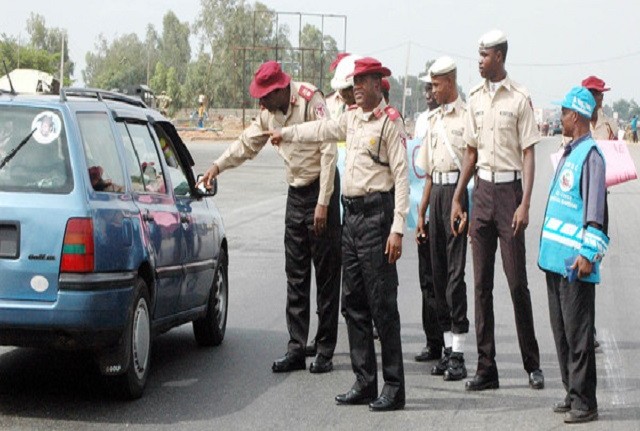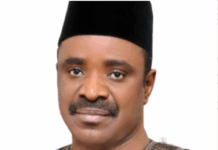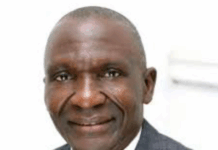
FRSC Under Fire as Nigerians Decry Endless Delays in Driver’s License Issuance
By Mukhtar Ya’u Madobi
Despite repeated assurances by the Federal Road Safety Corps (FRSC) to reform its operations, Nigerians continue to suffer frustrating delays in the issuance and renewal of driver’s licenses. The situation, compounded by alleged harassment and extortion by law enforcement officers, has drawn public outrage and calls for urgent intervention.
Corps Marshal Shehu Mohammed, who assumed office with promises to eliminate bureaucratic bottlenecks, is now facing growing criticism as the agency struggles to fulfill its commitments. Applicants across the country report months-long delays, even after completing the required biometric and payment processes.
One such case is that of Dr. Emmanuel Ogu, whose ordeal reflects a widespread systemic failure. Despite applying for a license renewal in August 2023 at the FRSC office in Mabushi, Abuja, Dr. Ogu has yet to receive his permanent license after ten months and multiple follow-up visits.
“Both temporary licenses issued to me expired, and I was forced to carry around a signed paper with a marker as proof of application,” he told PRNigeria. “During trips, especially across the southeast, I faced repeated police harassment, all because FRSC failed to issue my license.”
On several occasions, he was forced to contact senior police officers to secure his release from checkpoints. “It’s either incompetence or a deliberate scheme to expose citizens to extortion,” he lamented.
FRSC Promises Yet to Be Fulfilled
In June 2024, Corps Marshal Shehu Mohammed announced during a reception in Abuja that the delays were over, promising swift issuance of licenses and number plates. He claimed modalities had been introduced to improve efficiency, including a new task force which, according to FRSC, produced 73,000 licenses within two weeks.
Further, in August 2024, the agency announced a redesigned process to ensure licenses would be ready within three days of biometric capture. However, field reports and personal testimonies indicate that these timelines are rarely met.
Technology vs. Reality
An ICT expert, Engr Labaran Saleh questioned why a license should take months when banks can issue ATM cards with similar security features in minutes. “If we truly embrace digital governance, this shouldn’t be happening. This isn’t just inefficiency—it’s unacceptable,” he said.
Read Also:
He called for a comprehensive overhaul of FRSC’s leadership and operations. “Some elites get their licenses in days through backdoor channels. The rest of us who refuse to pay bribes are punished for being lawful,” he added.
Agency Responds to Criticism
In response to PRNigeria’s inquiries, FRSC Public Education Officer, Assistant Corps Marshal Olusegun Ogungbemide, said the agency was taking steps to clear the backlog. He cited the commissioning of a new high-capacity printing facility in Lagos that can print up to 1,700 licenses per hour.
According to him, “Over the past year, we have printed 862,787 driver’s licenses. However, 257,038 licenses remain unclaimed across our centers, despite applicants being notified.”
He acknowledged inherited logistical challenges but reaffirmed the Corps’ commitment to reforming the system.
How the Process Should Work
To renew a license, applicants must visit the official FRSC portal (www.nigeriadriverslicence.org), complete the online form, and pay the prescribed fee. The applicant then proceeds to the Driver’s License Centre (DLC), where officials from the Vehicle Inspection Office (VIO), State Board of Internal Revenue (SBIR), and FRSC handle endorsements and biometric capture.
A temporary license valid for 60 days is issued pending notification via SMS to collect the permanent license—ideally within the same period.
Reality vs. Procedure
In practice, this timeline often extends into months, with many applicants unable to retrieve their permanent licenses long after the expiry of the temporary ones. This leaves them vulnerable to extortion during routine vehicle checks by police and other enforcement agencies.
Call for Reform
Experts and civil society groups are urging the federal government to intervene. They demand an audit of FRSC’s licensing process, immediate deployment of more digital tools, and firm action against corrupt officials within the system.
They argued that the renewal of a driver’s license in this digital age should not exceed 24 hours if the necessary data has been captured.
Bottom Line
The persistent delays in issuing driver’s licenses by FRSC highlight a troubling institutional failure. While leadership continues to issue optimistic declarations, the experiences of ordinary Nigerians suggest a widening trust gap. Without urgent and transparent reforms, the agency risks undermining public confidence and violating citizens’ rights to timely access to essential identification and mobility documents.
By PRNigeria











































